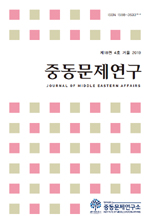이슬람의 공공제도로서 와끄프 연구
A Study on Waqf as a Public System of Islam
- 명지대학교 중동문제연구소
- 중동문제연구
- 중동문제연구 제18권4호
-
2019.12139 - 165 (27 pages)
-
DOI : 10.52891/JMEA.2019.18.4.139
- 35

The Islamic Community (Ummah), where the religious practice of Islam can be actualized, occupies a central position in Islamic faith. Muslims have paid much attention to publicity and public welfare to make their community sustainable. The emergence and development of maṣlaḥa (public interest) in uṣūl al-fiqh (Islamic legal theory) shows the deep concern of Muslims about publicity. The fact that maṣlaḥa came to be regarded as the final purpose of Sharīʿah in Abū Ḥāmid al-Ghazālī’s legal theory means that the interpretation of law was flexible. The concept of public goods can be found in ḥadīth. Especially land and water have been treated as important public goods in Islamic legal thought. The development of ḥuqūq al-irtifāq (the rights of easements) has supported the publicity of these goods. The legal concern about publicity in Islam was institutionalized as charitable endowments of Islam(waqfs). The waqf system is an excellent public system that regulates common goods. Its legal foundation is, however, surprisingly very weak. Ḥadīth is the most important source of law for waqfs, and there is no ground in the Qurʾān as their primary source of law. It shows that waqfs are the result of active interpretation of law in favor of public interests.
Ⅰ. 서론
Ⅱ. 공공의 원칙에 대한 법원학적 해석
Ⅲ. 이슬람법 속 공공재
Ⅳ. 공공재의 성공적 운용과 와끄프
Ⅴ. 결론
(0)
(0)